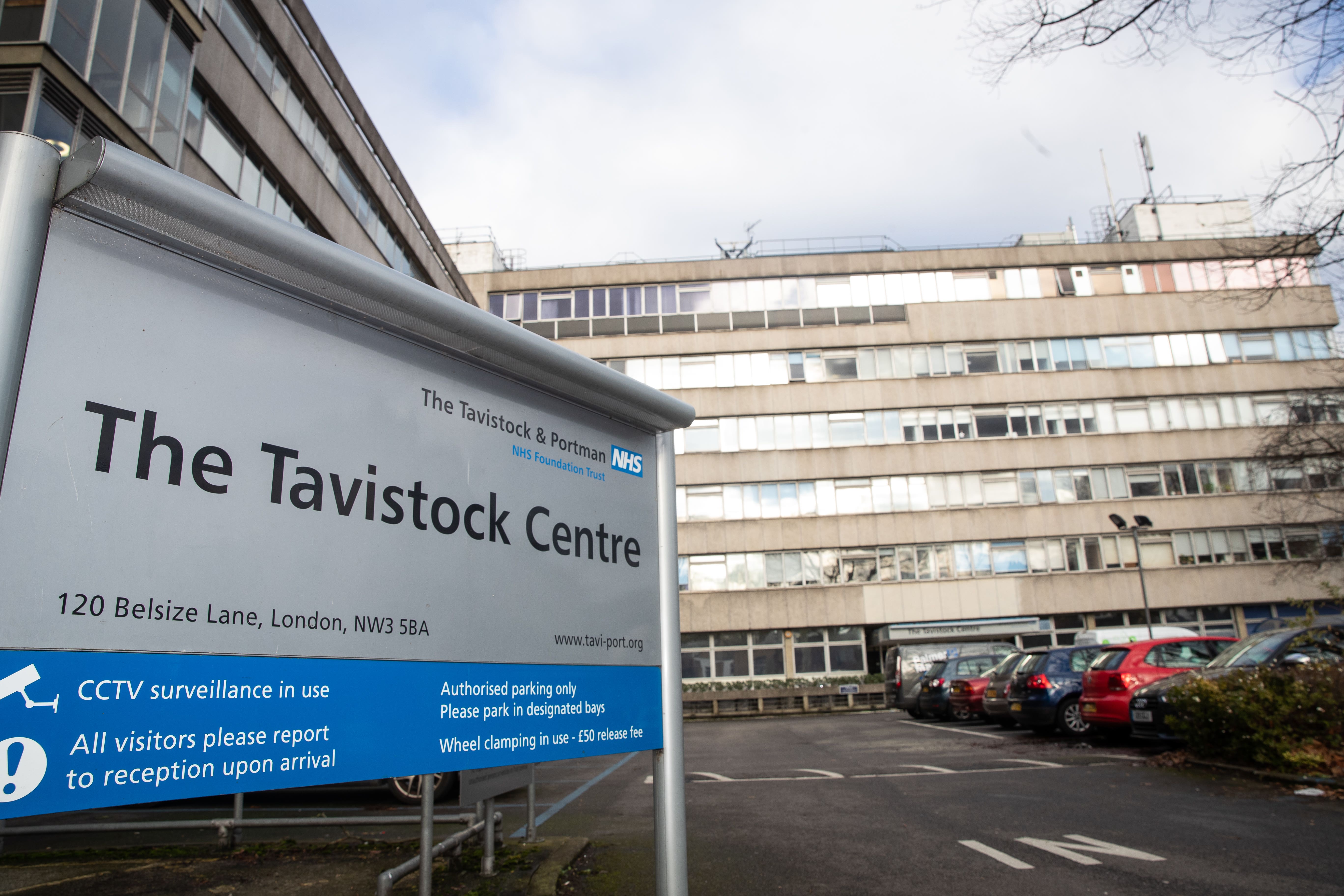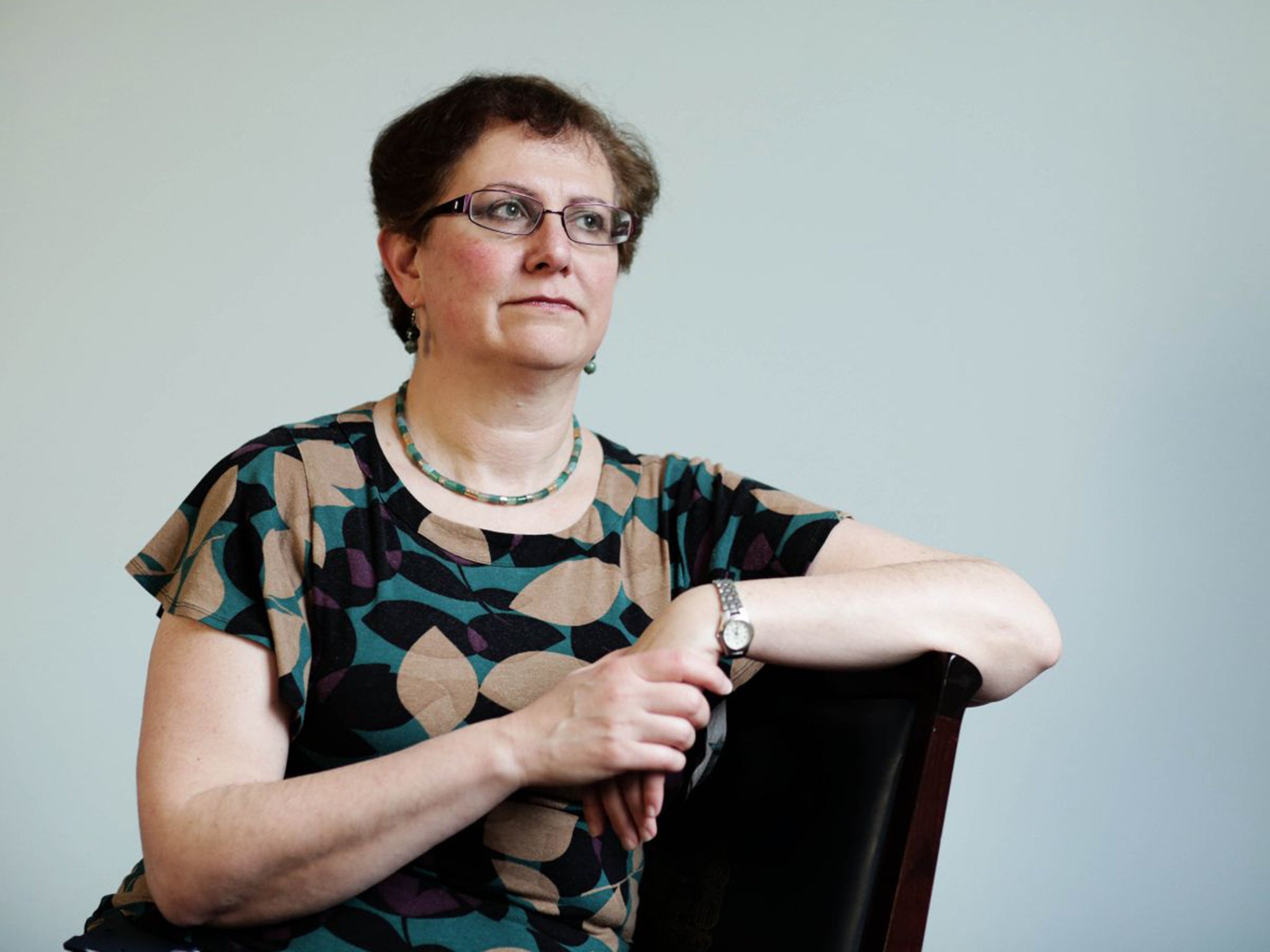Trans children failed by NHS amid toxic debate on gender identity, major review finds
Major report warns ‘polarisation and stifling of debate’ has not only let children down but hampered medical and scientific progress in the area
Your support helps us to tell the story
From reproductive rights to climate change to Big Tech, The Independent is on the ground when the story is developing. Whether it's investigating the financials of Elon Musk's pro-Trump PAC or producing our latest documentary, 'The A Word', which shines a light on the American women fighting for reproductive rights, we know how important it is to parse out the facts from the messaging.
At such a critical moment in US history, we need reporters on the ground. Your donation allows us to keep sending journalists to speak to both sides of the story.
The Independent is trusted by Americans across the entire political spectrum. And unlike many other quality news outlets, we choose not to lock Americans out of our reporting and analysis with paywalls. We believe quality journalism should be available to everyone, paid for by those who can afford it.
Your support makes all the difference.Vulnerable children seeking gender care are being let down by the NHS amid a row of “exceptional toxicity” about trans rights in Britain, a long-awaited review has found.
The independent report, published on Wednesday, says young people with gender dysphoria are being treated in a system underpinned by “remarkably weak” research, gaps in mental health care and “unusual” clinical practice.
The review, led by distinguished paediatrician and former Royal College of Paediatrics and Child Health president Dr Hilary Cass, warns that the “polarisation and stifling of debate” by adults has not only let children down but hampered medical and scientific progress in the area, with healthcare professionals afraid to openly discuss their views.

It said studies had been cynically “exaggerated or misrepresented by people on all sides”, while doctors are pursuing life-changing treatment on young people despite a profound lack of evidence. Addressing the children directly impacted by failings, Dr Cass said: “Research has let us all down, most importantly you.”
One children’s campaigner said the report, commissioned after a steep rise in the numbers of children and young people using the NHS for help around their gender, should be seen as a “watershed moment” which will give Britain the “opportunity to dismantle the existing barriers”.
The review, which has taken nearly four years to complete, also found that:
- Gender identity treatment for youngsters has been based on “remarkably weak evidence”
- Puberty blockers and hormone treatment had been given to young patients despite a lack of research into their impact
- The gender care service is not operating to the “same standards” as other health services for children and young people
- Knowledge of experienced clinicians has been “dismissed and invalidated” due to the polarised nature of the conversation
- Professionals are afraid to openly discuss their views and therefore shut down the debate at the expense of young patients
In a forward to the report, Dr Cass said: “There are few other areas of healthcare where professionals are so afraid to openly discuss their views, where people are vilified on social media, and where name-calling echoes the worst bullying behaviour. This must stop.”

Discussing the difficulties she faced while working on the review – including engaging with groups both keen on gender affirmation and those wanting a more cautious approach – she added: “The surrounding noise and increasingly toxic, ideological and polarised public debate has made the work of the review significantly harder and does nothing to serve the children and young people who may already be subject to significant minority stress.
“Ultimately, we’ve got to find a way to put the animosity aside to come to a shared consensus and to find the best possible way forward for children and young people and their families.”
The report, commissioned in 2020, highlights problems spanning the whole care of children – from when they first question their gender, right through to when they may receive medical treatment.
Dr Cass said children needing medical intervention were not getting wider support in managing their mental health problems or even getting counselling to work through their questions.
She said she had grown “increasingly worried about the numbers of young people in distress, on a waiting list, not getting the appropriate services, at risk”. “And that’s not OK. It’s just not acceptable,” she added.
The report, which runs to nearly 400 pages, lays out 32 recommendations on how to ensure youngsters who are confused about their gender get a standard of care that is “safe, holistic and effective”, such as screening for neurodevelopmental conditions – like autism –and a mental health assessment.

Among the review’s recommendations are calls for NHS England to put a “full programme of research” in place to analyse the characteristics and outcomes of every young person who uses gender services.
Dr Cass also urged the NHS to review its policy on giving children masculinising or feminising hormones from the age of 16, saying there “should be a clear clinical rationale” for providing hormones at this age, rather than waiting until they turn 18.
While NHS England last month confirmed puberty blockers would no longer be given to children outside research trials, 16-year-olds can still be given hormones in the form of testosterone or oestrogen.
Young people aged 17-25 should have a “follow-through” service for care instead of going straight into adult services, the review said, while those who have not yet reached puberty should have a “separate pathway” so they and their parents or carers are “prioritised for early discussion with a professional with relevant experience”.
The NHS also needs to take a “more cautious approach” when it comes to social transitioning – ie where someone might change their pronouns, name and/or clothing – for children, she said.
The review into services was launched following the exposure of a high-profile scandal at the Tavistock and Portman Foundation Trust which faced a lawsuit in 2019 following concerns children were being given puberty-blocking drugs without robust data or evidence.
On the issue of puberty blockers, Dr Cass said she had been “disappointed by the lack of evidence on the long-term impact of taking hormones from an early age”.
Reviewers said children who faced lengthy waits for NHS care were even turning to private services and able to obtain “unregulated and potentially dangerous hormone supplies over the internet”.
Dr Cass was asked to review gender identity services (GIDS) for children in 2020. NHS England said at the time that the review was established in response to a range of issues including a rise in referrals to the Tavistock and Portman NHS Foundation Trust from just under 250 in 2011/12 to more than 5,000 in 2021/22.
Figures uncovered in the final report show referrals to GIDS for children rose significantly from 2014 with young females making up the large proportion of new referrals.
Professor Steve Turner, president of the Royal College of Paediatrics and Child Health (RCPCH), said the review was a “massive undertaking” and the college will “closely consider the report’s recommendations”.
“For some time now, rising demand for gender identity services across the UK has led to significant waiting times for children with gender-related distress, leaving these young people particularly underserved and vulnerable,” he added.
“It’s obvious that more resources are needed to address the holistic health needs of this young cohort.”
Mark Russell, chief executive of The Children’s Society, said: “This report should mark a watershed moment; an opportunity to dismantle the existing barriers and foster an environment which places the well-being and safety of all children at its heart.
“The message is clear: every child, regardless of their gender identity, deserves to have the right support at the right time.”
Robbie de Santos, director of campaigns and human rights at LGBT+ rights organisation Stonewall, said: “What is important, above all, is that trans and gender-diverse children get the quality healthcare that they need and deserve.”
NHS England said it welcomes the review and will set out a full implementation plan but has already written to local NHS leaders asking them to pause offering a first appointment at gender clinics to those who have not yet reached their 18th birthday.
Prime minister Rishi Sunak said: “We’ve seen a sharp rise in recent years of children, particularly adolescent girls, questioning their gender.
“I welcome Dr Cass’ expert review which urges treating these children, who often have complex needs, with great care and compassion.
“We simply do not know the long-term impacts of medical treatment or social transitioning on them, and we should therefore exercise extreme caution.
“We acted swiftly on Dr Cass’ interim report to make changes in schools and our NHS, providing comprehensive guidance for schools and stopping the routine use of puberty blockers, and we will continue to ensure we take the right steps to protect young people. The wellbeing and health of children must come first.”

Join our commenting forum
Join thought-provoking conversations, follow other Independent readers and see their replies
Comments